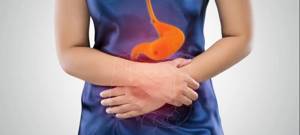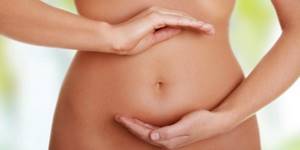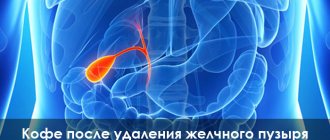Only lazy people don’t talk about the dangers of coffee, and such warnings are justified: caffeine has a powerful effect on all systems of the body. In particular, stomach pain after coffee is a very common problem. True, such complaints rarely go to the doctor if the pain is not accompanied by any other alarming symptoms.
Usually in such a situation, people simply stop drinking the drink, or turn their attention to other varieties of it, for example, they start drinking coffee with milk rather than strong black coffee.
Read on to find out why coffee can cause stomach pain and what ways to cope with this problem.
Inappropriate time to drink the drink
The first and most common reason why your stomach hurts from coffee is carelessness in choosing the time for a coffee break. Everyone knows that caffeine has a very strong effect on the body, and coffee beans contain, among other things, a large amount of acids. This “explosive” composition causes discomfort if it is consumed on an empty stomach - when mixed with gastric juice, the substances form an acid-base environment that is extremely dangerous for the gastric mucosa.
This leads to unpleasant sensations and pain, like gastritis. However, frequent drinking of coffee on an empty stomach is one of the most common causes of gastritis these days.
In addition, people with sensitive stomachs are not recommended to drink coffee in the morning, even after meals, since in this case the drink will be harmful to health.
Features of symptoms
Patients with this problem complain of aching, excruciating pain in the stomach that occurs every 5-10 minutes after drinking coffee in the morning on an empty stomach . The pain in nature resembles the symptoms of gastritis and goes away on its own within 20 minutes to half an hour. There are usually no other symptoms, but in rare cases nausea and vomiting may occur.
Treatment methods
If you are faced with a similar problem, then, of course, you should not drink coffee on an empty stomach in the future. It is also worth consulting with your doctor to determine, taking into account your age, weight and individual characteristics, an acceptable dose of coffee for you.
In order to relieve existing pain, you should not take medications - this will only harm your stomach . Medicines by themselves should not be taken on an empty stomach, and in combination with coffee they can even lead to unpleasant consequences.
It's best to have breakfast - prepare a light and healthy breakfast that will relieve pain. For example, eat a bowl of oatmeal - due to its consistency, it gently envelops the walls of the stomach, preventing them from being irritated by gastric juice, and also restores the acid-base balance.
The problem of pain in the stomach after coffee
Avid coffee drinkers have experienced discomfort in the stomach at least once in their lives. As a result of research, scientists were able to find out that caffeine and catechol contained in coffee increase the production of hydrochloric acid in the stomach.
If you notice regular pain in the gastrointestinal tract, then it will be useful for you to know: before drinking a cup of coffee, it will be useful to have a small snack. A light breakfast of oatmeal and a sandwich with butter is an ideal choice.
Remember: drinking coffee on an empty stomach is not an option for people with digestive problems. Caffeine and catechol stimulate excessive production of gastric juice. In the event that food does not enter the body in a timely manner, hydrochloric acid will begin to corrode the walls of the stomach.
If your stomach hurts after coffee, but you had breakfast, then the problem of discomfort may be hidden in the presence of chronic diseases.
For people suffering from ulcers and pancreatitis, it is better to avoid coffee altogether. Don't despair if you are an avid coffee drinker. Replace your favorite drink: chicory and cocoa.
You should avoid coffee:
- people with diseases of the cardiovascular system;
- people with diseases of the central nervous system;
- people suffering from insomnia and mental disorders.
Please note that it is better to completely exclude evening coffee drinking from your life. The coffee drink falls into the fourth food group. It will take a full 4 hours for the stomach to digest the coffee liquid.
Rule for you: drink coffee no later than 4 hours before bedtime.
If you notice that after coffee with milk the pain intensifies, then perhaps the cause should not be looked for in the coffee ingredient. A nutritious liquid such as milk is considered the most acceptable medium for the development of harmful microorganisms. After opening a bottle of milk, store the product in the refrigerator for no more than 24 hours. To alleviate your condition and relieve discomfort, you can drink any sorbent.
Coffee drinks should not be consumed by people with high stomach acidity. By ignoring this rule, you will increase secretions in the gastrointestinal tract, and existing chronic diseases of the gastrointestinal tract will make themselves felt.
Individual intolerance to the type of coffee
Another reason why your stomach hurts after coffee is the wrong choice of drink type. A group of specialists experimentally found that some varieties and methods of frying them release more acids during cooking than others. They most often lead to stomach pain.

© shutterstock
These varieties, in particular, include the popular and high-quality Arabica, as well as any light-roasted beans, that is, those that have not been subjected to intensive heat treatment.
Features of symptoms
Pain in the stomach, aching, occurring 5-10 minutes after drinking coffee . They go away on their own within half an hour, but resume at the next similar case. You can find out that the reason is the wrong type of coffee by trying another caffeine-containing drink, for example, a portion of instant coffee.
Treatment methods
If this problem arises, it would be rational to stop drinking the wrong type of coffee and find a similar replacement for it. You can also experiment with the quantity and strength of the drink - perhaps the coffee variety is not suitable for you, but a lower concentration will not cause stomach pain.
What diseases cause stomach pain after drinking coffee?
If discomfort appears periodically, even if the drink is not consumed on an empty stomach, and is of high quality, then there is a likelihood of developing some gastrointestinal pathologies. They may still be in the initial stages and, with normal, relatively healthy nutrition, may not manifest themselves in any way. When exposed to active substances contained in coffee, the pathology begins to progress. This may occur in the following situations:
- The development of gastritis or inflammation of the mucous membrane. Damaged areas of the gastric mucosa are especially susceptible to the aggressive environment that the drink creates; it is predominantly overly acidic. In this case, not only abdominal pain appears, but also nausea, sometimes turning into vomiting, and changes in stool. Often, it is after eating or drinking certain drinks that the symptoms of gastritis manifest themselves most intensely.
- Stomach ulcer. The disease is characterized by ulcerative formations on the gastric mucosa. When problem areas come into contact with irritants, of which there are plenty in coffee, painful attacks occur. In addition, other disorders of the digestive system and intestines may occur. For example, it is likely that after coffee your stomach becomes bloated, since with a high concentration of caffeine of some other compounds, changes in metabolic processes occur, leading to flatulence.
- Pancreatitis. Changes in the digestive system can also affect the pancreas, which can become inflamed, leading to pancreatitis. It is difficult to name coffee as the direct cause of pathology, but this drink, consumed in large quantities, can provoke a relapse.
Despite the certain beneficial properties of natural coffee, for some people this drink can cause some health problems. To exclude this, you need to choose only a high-quality product, drink in moderation and not on an empty stomach. If you experience systematic pain after drinking coffee, gastrointestinal or intestinal dysfunction, you should consult a therapist or gastroenterologist. There is a possibility of developing pathologies of the digestive system, as well as some other parts of the body.
Exceeding the recommended amount of drink
Another common reason why abdominal pain occurs after coffee is non-compliance with recommendations regarding the amount of drink and its strength. In this matter, of course, everything is very individual and depends on the functioning of your stomach, but general advice should be taken into account.

© shutterstock
So, you should not drink more than three servings a day. At the same time, in the mornings and evenings it is better to limit yourself to just one, and in the lunchtime and afternoon it is permissible to drink two.
Features of symptoms
The symptoms in this case will be similar to the previous ones: stomach pain that goes away on its own within half an hour. However, if the recommended dose is exceeded, other manifestations of the problem may appear : rapid heartbeat and breathing, sweating of the feet and palms, anxiety or agitation, rapid speech and “running” eyes. If the recommended dose is significantly exceeded, an obsessive state or panic attack may occur.
Treatment methods
If the recommended dose is slightly exceeded, you should wait out the condition - a hearty lunch and some time spent at rest will help relieve it. If the dose is significantly exceeded, it is recommended to rinse the stomach.
What to do
If your stomach hurts after coffee, there is a heaviness in the stomach, or vomiting, it is recommended to give it up for a while or replace it with a safer liquid. There are many plant analogues.
The presence of chronic intestinal problems should also be taken into account. For ulcers or gastritis, coffee intake should be minimized or completely abandoned. Provided that there are no gastrointestinal pathologies, but after drinking the drink there is pain in the epigastric region, you need to reconsider your attitude towards your favorite liquid. It is extremely important to observe the measure and adhere to a number of recommendations:
- if pain occurs in the abdominal area, you should immediately eat something or drink water or milk;
- Do not drink espresso on an empty stomach. If you don’t want to eat a big meal, you need to eat at least a cookie or a small piece of cheese;
- It is best to drink a cup of invigorating liquid half an hour after eating;
- if pain occurs systematically after eating an instant product, it should be replaced with a natural one and drunk in smaller portions;
- Lemon will help neutralize the effects of caffeine;
- you should avoid overly strong coffee;
- it is safer to drink a drink with milk, but only if there is no diarrhea;
- The appearance of discomfort is often noted when drinking excessively hot espresso. Therefore, it should be cooled to a suitable temperature.

Coffee drinks can have a beneficial effect on your health. True, only when consumed in moderation and following certain rules. If you drink large volumes of invigorating liquid, a number of negative changes are observed, and stomach pain often appears. It is extremely important to give up your favorite espresso for a while, and then drink it in small portions and only some time after eating. Due to this, there will be no harm to the gastrointestinal tract.
Source
Gastritis and peptic ulcer
Another reason why stomach pain may occur after coffee is gastrointestinal diseases such as gastritis and peptic ulcers. They are formed due to long-term adverse effects on the body: most often the cause is either systematic poor nutrition or a person being under constant stress. In such cases, gastritis develops, and then, if the patient does not take any measures to treat the disease, an ulcer occurs.

© shutterstock
Features of symptoms
With gastritis and ulcers, pain occurs not only after coffee, but also after any meal, even a minor one.
Treatment methods
Both of these diseases require observation by a doctor, as well as adherence to a special diet. Coffee in small quantities is allowed only in mild forms of gastritis , however, in more complex cases, as well as in case of peptic ulcer disease, the drink is completely excluded from the patient’s diet.
What could be the reasons?
If drinking coffee leads to unpleasant sensations in the stomach, this happens extremely rarely or for the first time, then it is too early to draw conclusions about serious illnesses. Most likely, the drink was of low quality and was consumed on an empty stomach. It is also quite possible that your stomach is twisting not after coffee, but due to another reason.
What causes abdominal pain?
It is not a myth that discomfort can actually develop after drinking coffee. This is explained by the composition of the drink, which includes not only caffeine, which is characterized by special chemical activity, but also other compounds, including acids. All these substances in combination can affect the gastric mucosa, esophagus, and subsequently the intestines.
Another cause of discomfort after drinking coffee may be the compounds used to process the beans. They are mainly found in a ground mixture; such products are distinguished by their low price and unique taste.
The likelihood of unpleasant sensations depends on the type of coffee and processing method. For example,
if the grains have not been sufficiently heat-treated, then they are more likely to cause discomfort and stomach pain, since they contain a high content of acidic compounds. This means that if there are no gastrointestinal pathologies, but your stomach suddenly twists after drinking a coffee drink, then later you can try a different variety, perhaps there will be no such reaction.
In some cases, the intestines hurt after coffee, and experts also find an explanation for this in the specific composition of the product, which affects various systems of the body. For example, a drink on an empty stomach or in large quantities provokes the reproduction of adrenaline; caffeine compounds rapidly spread throughout all tissues, reach the brain and, under some conditions, can be perceived as poisonous substances or toxins. The reaction of the body's protective functions will be aimed at eliminating potentially dangerous compounds, which leads to spasms and discomfort in the intestines.
Which doctor should I contact?
We looked at the harm caused by coffee, the causes of stomach pain, and now it’s time to tell you which specialist you should go to in this case. So:
- If your stomach hurts after coffee, you should visit a gastroenterologist.
- If this is not possible, or you are not sure of the causes of pain, visit a general practitioner - therapist.
- If you want to know how much coffee you should drink, as well as advice on other nutrition-related issues, consult a nutritionist.

© shutterstock











